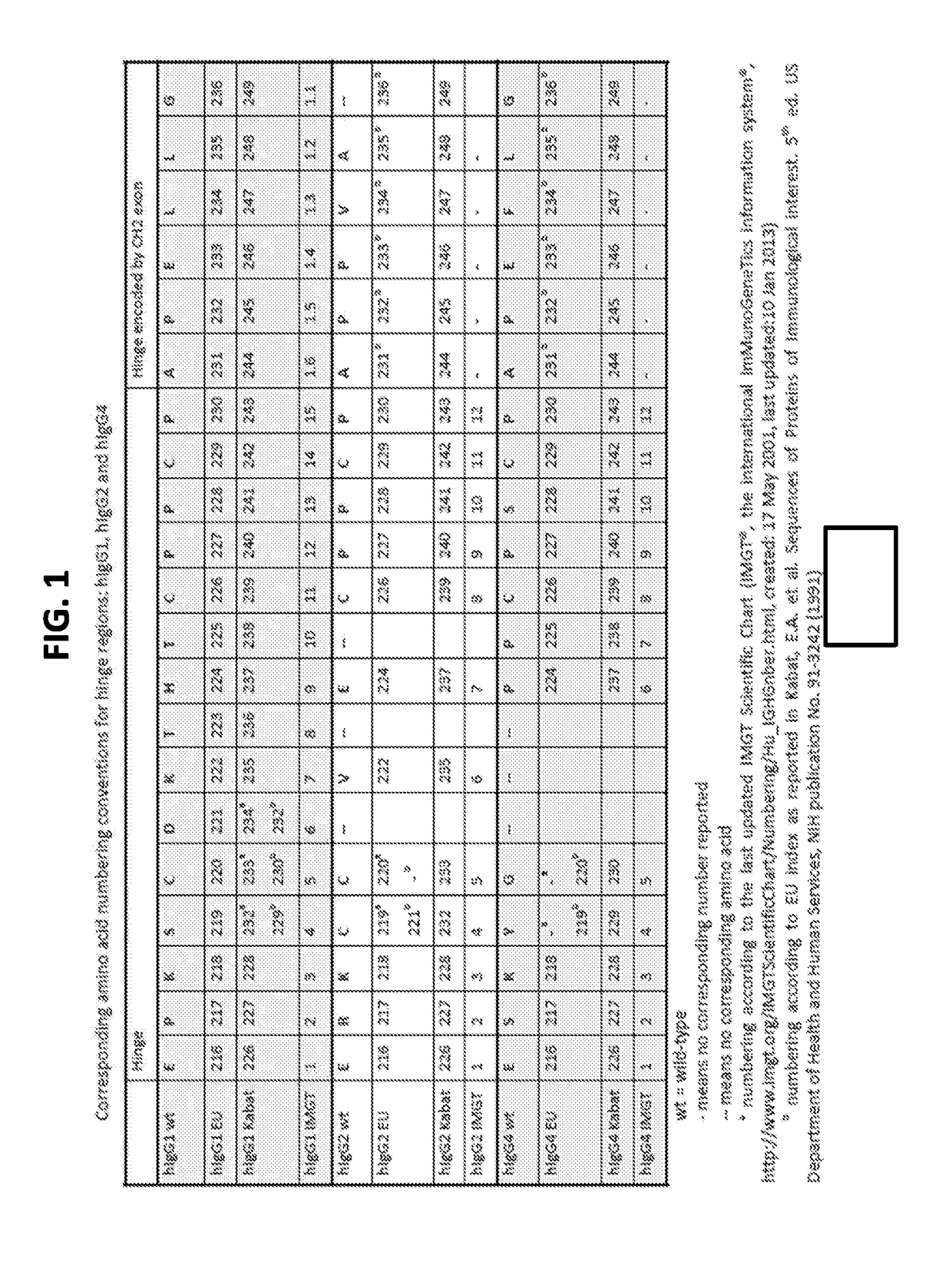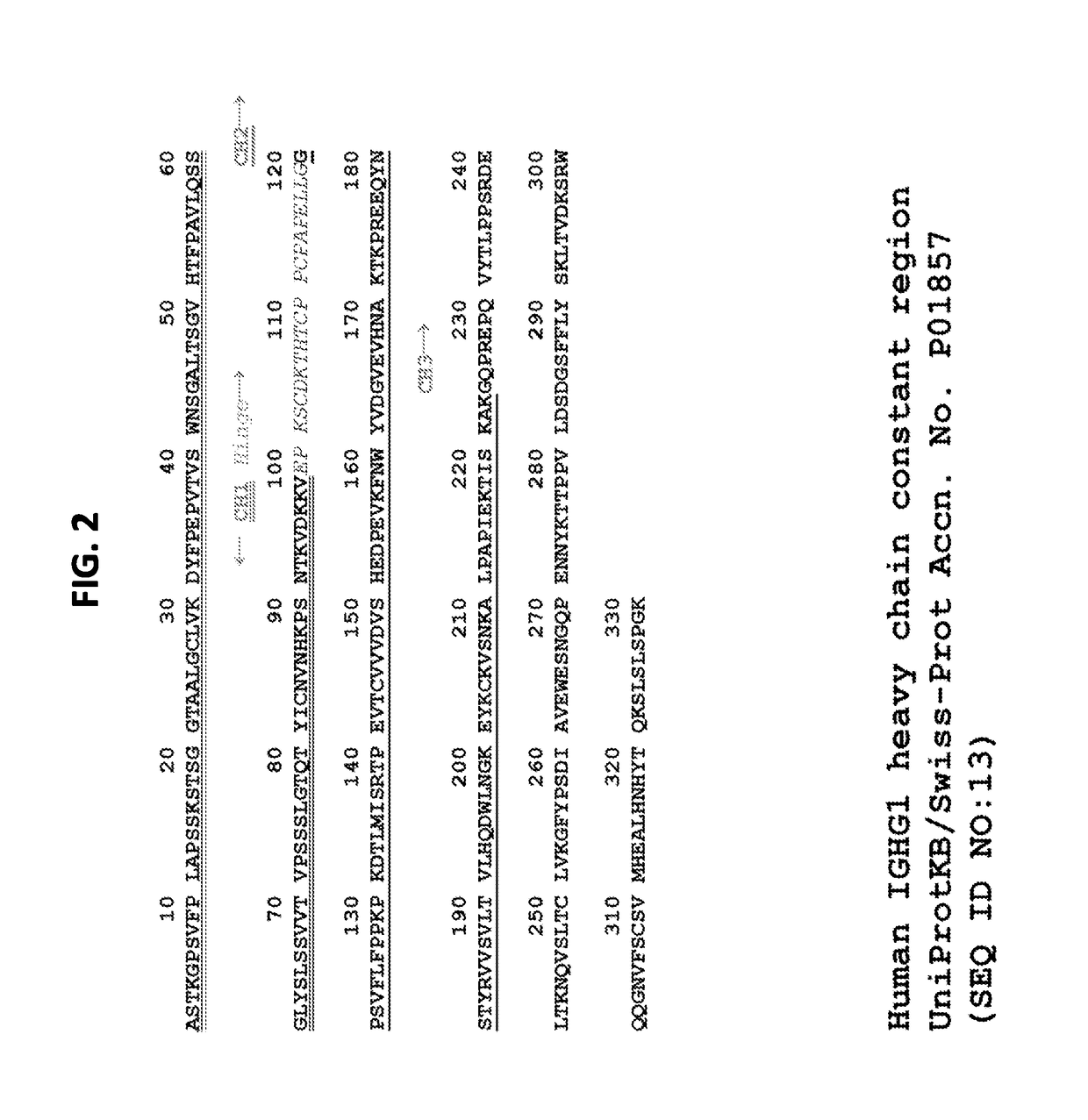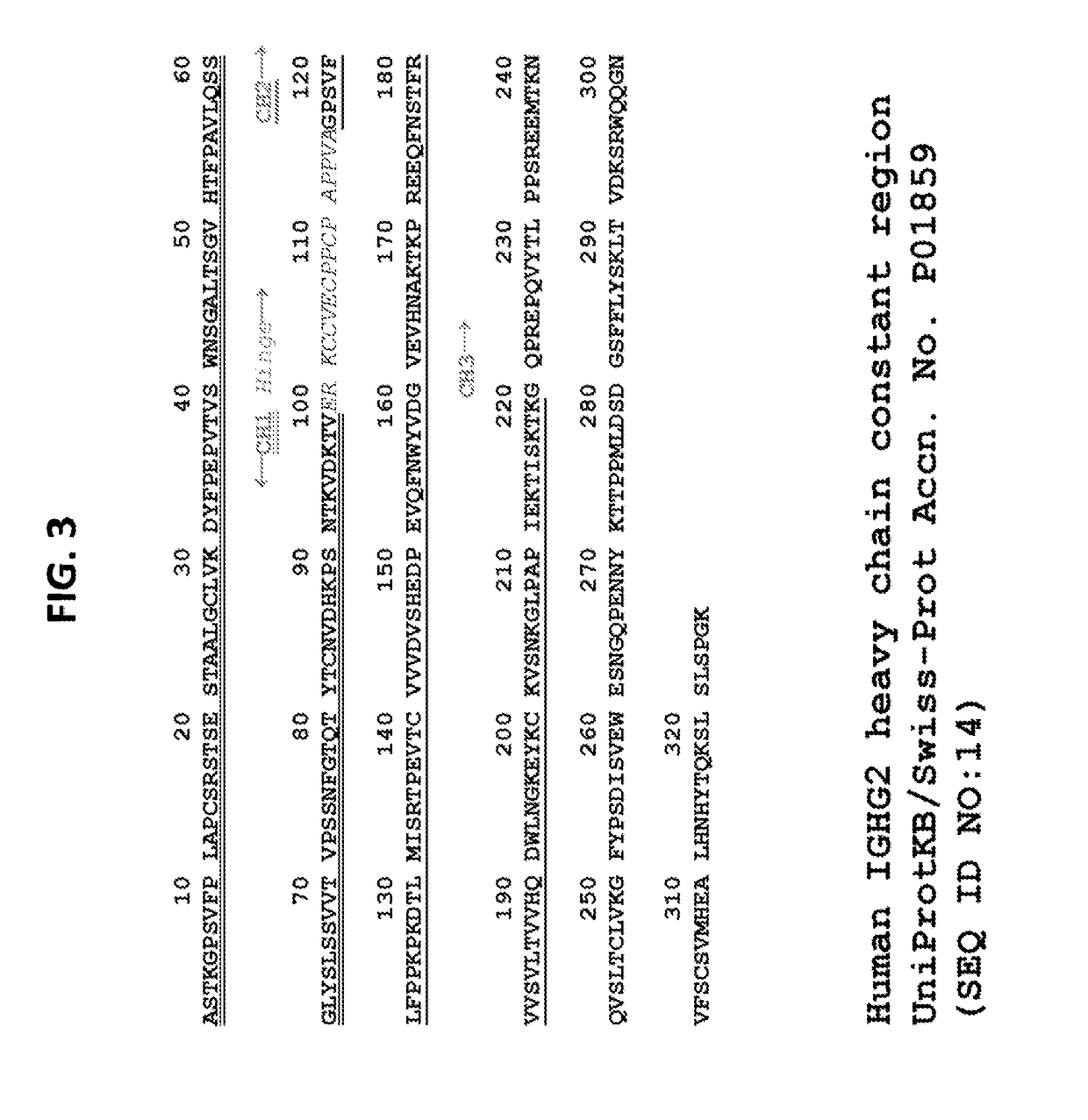Heavy Chain Constant Regions with Reduced Binding to Fc Gamma Receptors
a heavy chain constant and gamma receptor technology, applied in the field of recombinant protein engineering, can solve problems such as unsatisfactory inflammation, and achieve the effect of reducing binding to protein
- Summary
- Abstract
- Description
- Claims
- Application Information
AI Technical Summary
Benefits of technology
Problems solved by technology
Method used
Image
Examples
example 1
n of Hinge-Modified Antibodies
[0087]Several of the antibodies described in the following examples are bispecific antibodies in which one arm is that of an anti-hCD3 antibody and the other arm is from an anti-hCD20 antibody as described by WO2014047231.
[0088]Antibody 1, 9F7_VH_IgG4_GGG-(233-236), was made by site-directed mutagenesis using QuikChange Lightning Site-Directed Mutagenesis Kit (Agilent Technologies, Inc.; Catalog#210518) following the manufacturer's protocol, and starting with a chimeric IgG4 CH region (which contained the modifications S228P and ELLG233-236PVA; see WO2014047231). After sequence confirmation, the coding region was moved to a parent vector using Xho1-Not1 restriction sites to avoid any mutations in the non-coding region, and subsequently generating a vector construct with the hinge-modified IgG4 CH, having the hinge modifications of SEQ ID NO:1.
[0089]The anti-CD3(9F7 VH; see “L2K” based on WO2004 / 106380) variable region nucleic acid sequence was amplified...
example 2
ffinity to Fcγ Receptors
[0110]The hinge-modified antibodies (i.e. GGG-, GG--, G--- or no-G hinge replacement; Antibodies 1-4) and various control antibodies were tested for binding affinity to Fcγ receptors by surface plasmon resonance (SPR). The controls included Control Ab D (antiCD3×antiCD20-sIgG4 (S228P and ELFG233-236PVA), Control Ab B (antiCD3, human IgG1 isotype), and Control Ab A (antiCD3, human IgG4 isotype).
[0111]Briefly SPR experiments were performed at 25° C. on a Biacore T200 instrument employing a carboxymethyl dextran-coated (CM-5) chip. A mouse monoclonal anti-penta-histidine antibody (GE Healthcare) was immobilized on the surface of the CM-5 sensor chip using standard amine-coupling chemistry. 140RU-376RU of His-tagged human or monkey FcγR proteins were captured on the anti-penta-histidine amine-coupled CM-5 chip (or in the case of FcRn, about 155-299 RU of FcRn mutant constructs were immobilized on a high density anti-myc coated Biacore chip) and stock solutions of...
example 3
ity Analysis
[0114]U937 cells are a monocyte cell line expressing FcγRI and FcγRIIA. U937 cells were used as a positive killer effector control in the following cytotoxicity assay. As such, the ability of antibodies with chimeric CH regions to kill U937 cells via Fc / FcγR interactions was tested. Calcein killing assays were carried out using the following protocol: Human and cynomolgus Peripheral Blood Mononuclear Cells (PBMCs) were isolated over Ficoll-Paque (GE Healthcare Life Sciences) or via Lymphocyte-Mammal density cell separation media (Cedarlane Laboratories), respectively. The isolated PBMCs were activated over a course of several days with media containing recombinant human IL-2 (30U / ml) and T-cell activation beads (anti-CD3 / CD28 for human PBMC, anti-CD2 / CD3 / CD28 for cynomolgus PBMC). Activated T-cells were isolated from the PBMCs by centrifugation, then resuspended in 1 ml media. The magnetized beads were removed from the T-cells. Target cells (U937) were labeled with calce...
PUM
| Property | Measurement | Unit |
|---|---|---|
| Time | aaaaa | aaaaa |
| Time | aaaaa | aaaaa |
| Concentration | aaaaa | aaaaa |
Abstract
Description
Claims
Application Information
 Login to View More
Login to View More - R&D
- Intellectual Property
- Life Sciences
- Materials
- Tech Scout
- Unparalleled Data Quality
- Higher Quality Content
- 60% Fewer Hallucinations
Browse by: Latest US Patents, China's latest patents, Technical Efficacy Thesaurus, Application Domain, Technology Topic, Popular Technical Reports.
© 2025 PatSnap. All rights reserved.Legal|Privacy policy|Modern Slavery Act Transparency Statement|Sitemap|About US| Contact US: help@patsnap.com



